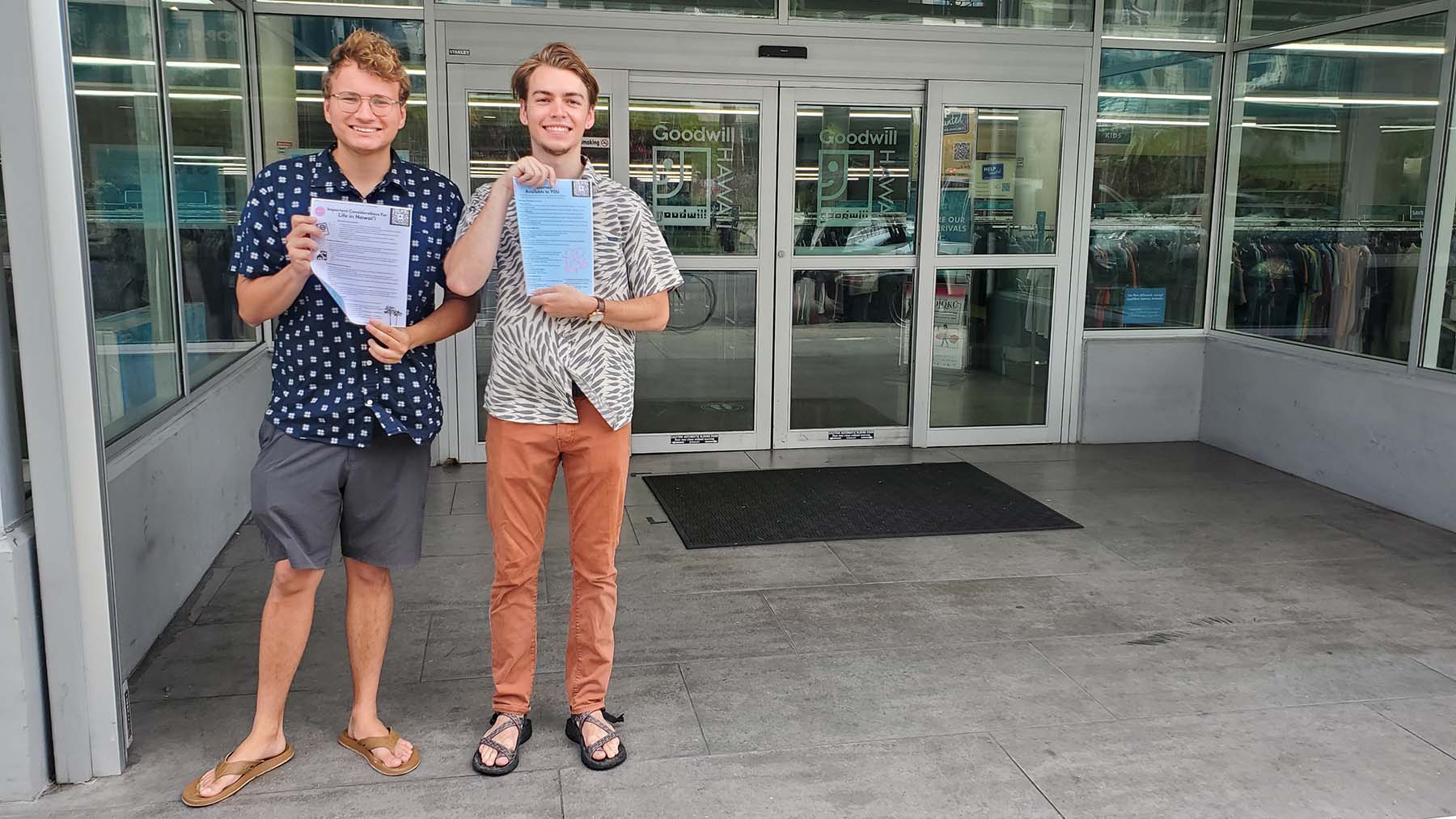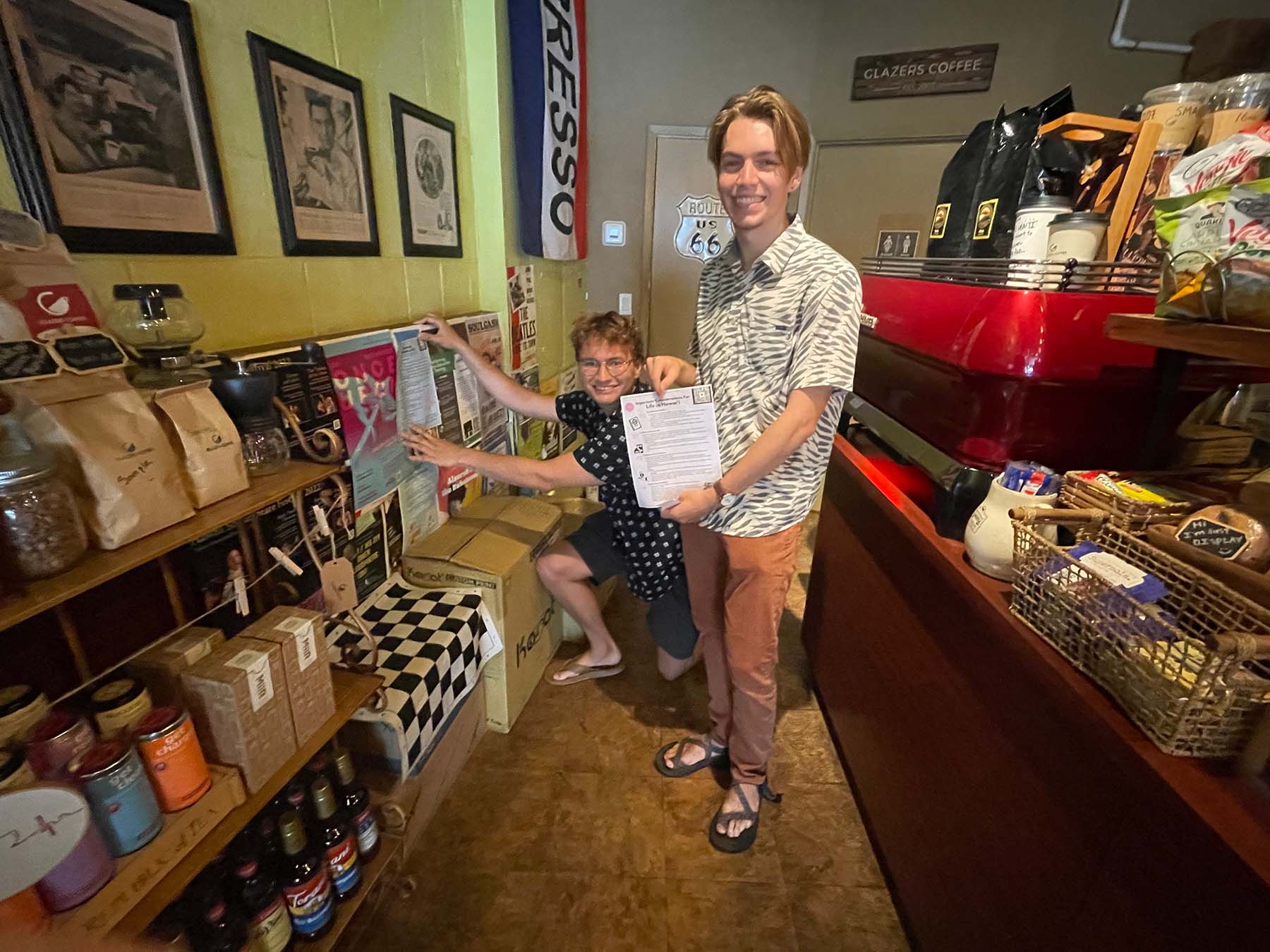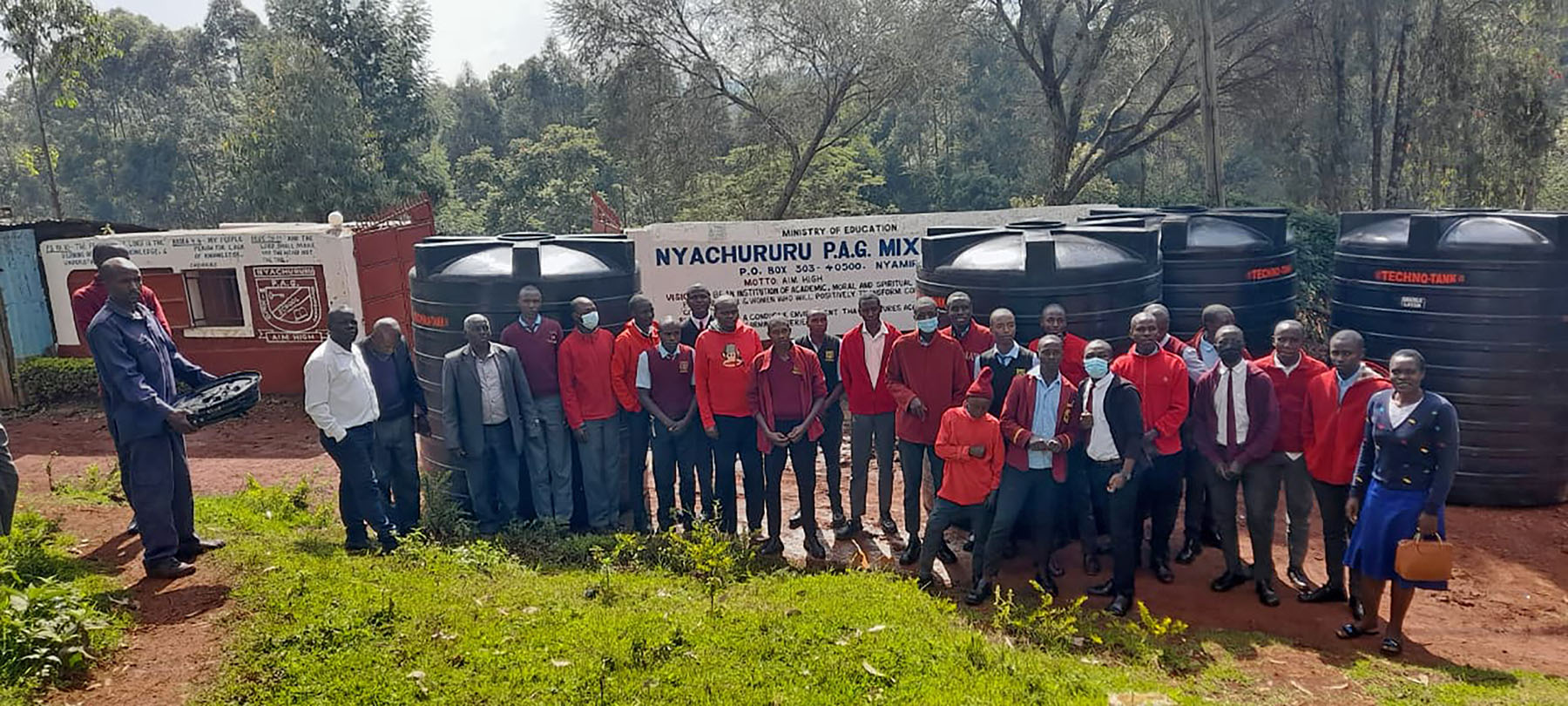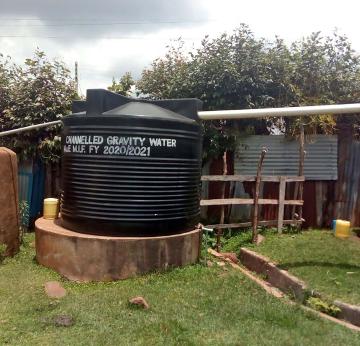100 Projects for Peace Inspires Grassroots Student Projects
Chase Engel ’23 and Christopher Unruh ’23 spent the summer on the Island of Oahu in Hawaii developing resources designed to help immigrant families find jobs, housing, and health care and to inform them about their legal rights. Joram Bosire ’23 secured funding that enabled members of his family to design and build water systems for three secondary schools in a village in his native Kenya.
Both endeavors were underwritten by 100 Projects for Peace, an organization that provides financial support to the 100 winning entries submitted each year by undergraduates enrolled in any of the 76 colleges and universities in the Davis United World College Scholars Program. Projects for Peace was created in 2007 through the generosity of Kathryn W. Davis, a lifelong internationalist and philanthropist who died in 2013 at the age of 106.

Unruh, an international studies major who was born and raised in Honolulu, said he had been interested in learning more about issues affecting immigrants after he took a course at Vassar titled A Lexicon of Forced Migration. “That class spurred my personal commitment to addressing forced displacement issues, including in my own community in Hawaii,” he said. After interning last summer for the National Network for Immigrant and Refugee Rights, he and Engel applied for the Projects for Peace grant.

Engel, an international studies major from Plainfield, NJ, said he and Unruh soon learned that because the immigrants in Hawaii come from so many different parts of the world—Korea, Japan, and Micronesia, as well as Central and South America—they face significant challenges obtaining basic services from agencies whose employees may not speak their language. And because the tourist industry, Hawaii’s largest employer, was adversely affected by the COVID-19 pandemic, entry-level jobs for new immigrants have become scarce, Engel said.
Throughout the summer, Unruh and Engel compiled information on immigrants’ legal rights from law firms and immigrant advocacy groups and collected information on how to obtain employment and housing. They had this information translated into the immigrants’ languages and distributed it in immigrant neighborhoods, and they used the data to create maps that indicated where government agencies and nonprofit organizations were located.
At the end of their time in Hawaii, Unruh and Engel wrote a report detailing the injustices and inequities immigrants face in Hawaii. They said they hoped the information they had gathered would be useful to those in the academic community, whose subsequent research on the topic would make the public more aware of the challenges immigrants encounter in Hawaii.
Unruh said learning about the struggles of immigrants in his hometown had been enlightening. “I was always aware that there was a fair amount of immigration in Hawaii, but it’s not something that’s talked about much, especially the systemic injustices [the immigrants] face,” he said.
Engel said the project had altered his views about life in Hawaii. “I always had notions of Hawaii as a beautiful paradise,” he said. “But when I arrived and walked through [Honolulu], I was confronted with the same economic disparities I see in other parts of the country. It made me want to do more to work for equality and justice for the people who live near me in New Jersey.”
Bosire said he hatched the idea to build water systems for the schools in the village of Bosamaro because he was keenly aware of the unreliability of the water systems built by the Kenyan government. “The water situation is improving, but it’s a slow process, and many villages need this kind of help,” he said.


Bosire said his father, who is an engineer, knew how to design the systems for the three secondary schools, and because he grew up in Bosamaro, he knew how to secure the labor to get the job done. He was not able to travel to Kenya this summer but said he was looking forward to visiting the village later this year or early in 2023 to view the finished project. Under the terms of the grant, Bosire will conduct seminars in each of the schools to talk to the village residents about how the water systems work and how they can focus on water conservation and proper sanitation.
He said he had heard about Projects for Peace from a Kenyan friend of his. “When I got the grant, it was gratifying to me to be able to help the people in this village in such a tangible way,” he said. “I have always been involved through my church in projects to help people, and this was another way I found I could help.”
About 100 Projects for Peace
100 Projects for Peace is an invitation to all undergraduates enrolled at any of the 76 American colleges and universities in the Davis United World College Scholars Program. Students submit proposals to design grassroots projects for peace that they themselves will implement anywhere in the world during the summer. Each year, the 100 projects judged to be the most promising and doable are funded at $10,000 each. The objective is to encourage and support today’s motivated youth to create and try out their own ideas for building peace in the 21st century.